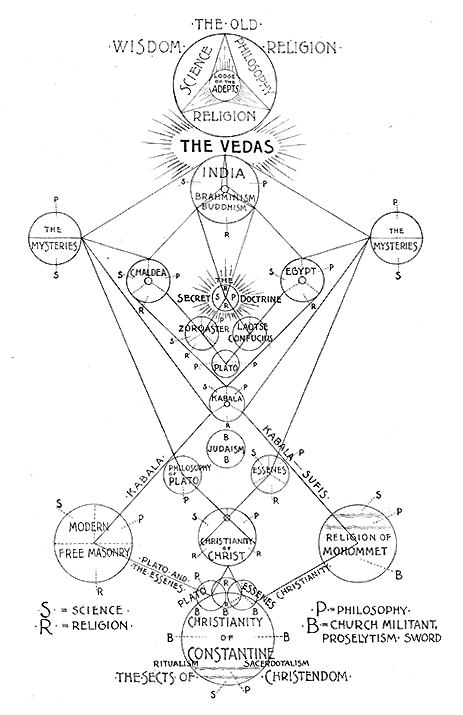Well technically "Islam" isn't really ancient at all. Neither is Mecca...and when I say that I mean in relation to ancient Egypt and India. Nobody cared about Mecca until the common era. So when the lessons say the "root of civilization" is in Mecca, Saudi Arabia, are we to take that at face value, or should we dig deeper?
If we stick to the lessons, India is the only other place aside from Arabia and Africa that is named clearly. In the 1-14, two consecutive degrees give some context:
In the understanding degree it says the North American Indians were exiled from India 16,000 years ago. It also says they are
original people. Now in the culture degree it says the root of civilization is in the "Arabian desert," and that Yakubs made devils were exiled to the caves of Europe, referred to elsewhere as the "hills of West Asia." We can take that literally, but does it make sense? How can a "desert" be the root of civilization? This video breaks down how Yakubs made devil was exiled from India, not Arabia:
Why do you think the NOI and the Moorish Science Temple before it esteems "Asia?" The original man is the "Asiatic" Black Man. India is the root of civilization in Asia. The NOI says that originally all Black people used to have straight hair and dark skin just like Indians...then Shabazz took his tribe into the jungles of Africa where their hair curled up and their facial features adapted over the course of 50,000 years. Malcolm X talked about it in one of his older speeches back when he was still in the NOI:
As for Vedanta, in order to understand where I'm coming from you have to really be familiar with Hindu philosophy, Vedas, Puranas, etc; it's tough to expound on it all in a post, but generally speaking:
-The Indian spiritual systems are the only systems that speak of history in clear terms of billions and trillions of years. No other spiritual system does this:
Hindu units of time - Wikipedia
-Ancient Hindu texts like the Puranas were meant to teach divine knowledge, usually in the form of an exchange between teacher and student (like the lessons), before finally being introduced to the truths of the Upanishads, where it is revealed that the SELF is ultimate, underlying reality for the world experience.
- The Brahma sutras, which is one of the fundamental texts for Vedanta, is composed in aphoristic form, very similar to the way the 1-36 is presented.
We don't have texts or literature from Kemet/Egypt where these philosophical ideas are laid out and developed. In India, divine knowledge was passed down from teacher (Guru) to disciple in succession until the present day :
Parampara - Wikipedia we don't have any evidence Kemet operated in the same manner. People only speculate on what the ancient Egyptians believed in terms of philosophy, so when you are trying to draw parallels to the way the NOI has constructed and presented it's doctrine, logic will take you to India over any place else.
One thing is for sure....none of this has anything to do with Islam when you really put it under a microscope.





